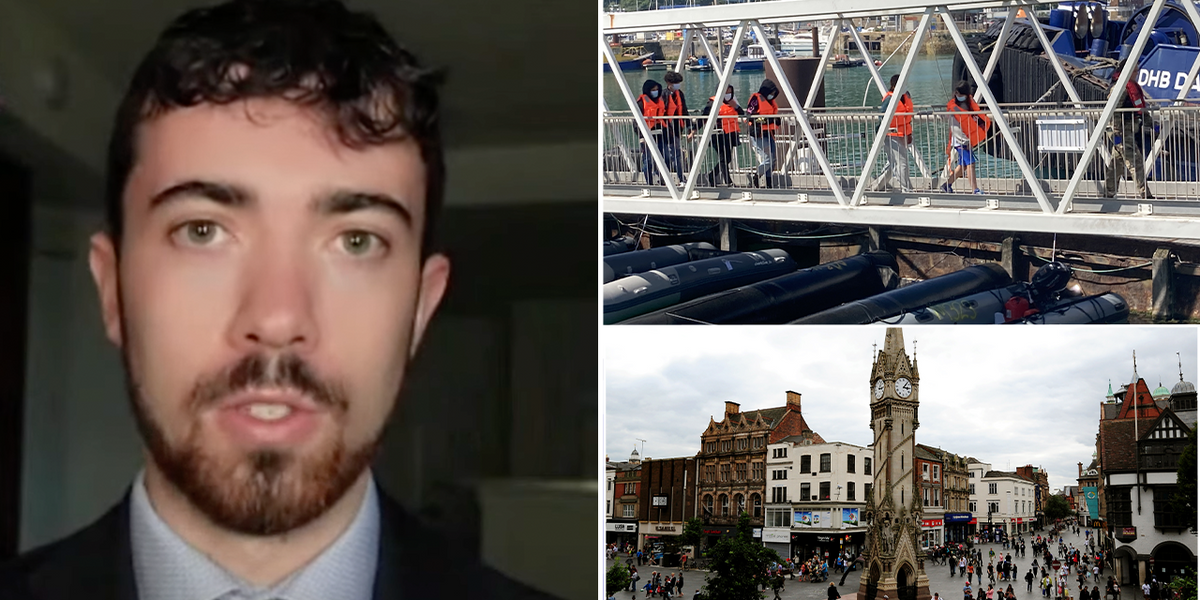Immigration: The Truth – A Deep Dive into the Changing Face of Britain
In a thought-provoking new documentary titled "Immigration: The Truth," Steven Edginton sheds light on the complex and often contentious issue of immigration in the UK. Through his exploration, he reveals the emotional landscape surrounding immigration, highlighting the feelings of betrayal many Britons experience in the face of rising migration numbers. This article delves into Edginton’s key takeaways, the contrasting perspectives on immigration, and the implications for British society.
A Sense of Betrayal
During his discussions on GB News, Edginton articulated a prevailing sentiment among many Britons: a feeling of betrayal regarding the high levels of immigration. He noted that the UK has seen staggering numbers of migrants entering the country, with recent data from the Office for National Statistics (ONS) indicating a net migration figure of 685,000 in 2023. This figure has sparked outrage among those who feel that politicians have failed to deliver on promises to reduce immigration.
Edginton emphasized that the issue is not merely statistical; it is deeply emotional. Many individuals feel that their concerns have been ignored, leading to a growing divide between different communities. This emotional response is evident in various regions across the UK, where the impact of immigration is felt most acutely.
The Role of Institutions
One of the critical points raised by Edginton is the role of the UK’s institutions, particularly the National Health Service (NHS), in attracting migrants. He argues that the perceived generosity of these institutions incentivizes both legal and illegal immigration. This has led to a situation where many Britons feel overwhelmed by the influx of newcomers, further fueling the narrative of betrayal.
Edginton’s observations suggest that the relationship between immigration and public services is a significant factor in shaping public opinion. As resources become strained, the frustrations of local populations grow, leading to heightened tensions and a sense of competition for limited resources.
A Tale of Two Cities: Leicester and Great Yarmouth
Edginton’s documentary takes viewers to Leicester, described as Britain’s least white city, where approximately 40% of the population identifies as white. In Leicester, he encountered a mix of opinions on immigration. While some residents celebrated the city’s multiculturalism and diversity, others expressed discontent and concern over the rapid changes in their community.
The stark contrast in attitudes highlights the complexity of the immigration debate. Edginton pointed out that the recent race riots in Leicester, sparked by tensions between different communities, serve as a reminder that the situation is not as rosy as some may portray. The reality is that immigration can lead to significant social challenges, and the experiences of residents can vary widely.
In Great Yarmouth, Edginton found similar sentiments. Many locals voiced their anger and feelings of betrayal, particularly in light of the promises made by politicians to reduce immigration. This discontent has translated into political action, with the Reform UK party gaining traction in areas like Great Yarmouth, where economic struggles and immigration concerns intersect.
The Political Landscape
The rising tide of immigration has not only affected public sentiment but has also reshaped the political landscape in the UK. The success of Nigel Farage’s Reform UK party in the recent general election, where they won five seats, underscores the growing frustration among voters. The party’s firm stance on immigration, advocating for a ‘net zero’ policy, resonates with those who feel that their voices have been overlooked.
As the political discourse continues to evolve, it is clear that immigration will remain a pivotal issue in British society. The divide between pro-immigration advocates and those who feel betrayed by current policies is likely to deepen, leading to further debates and discussions in the public sphere.
Conclusion
Steven Edginton’s documentary, "Immigration: The Truth," serves as a crucial exploration of the changing face of Britain in the context of immigration. By highlighting the emotional responses of individuals and the contrasting perspectives within communities, Edginton sheds light on a complex issue that continues to shape the nation’s identity. As the UK grapples with the implications of high levels of immigration, it is essential for policymakers to listen to the concerns of their constituents and seek solutions that address the challenges faced by both newcomers and long-standing residents. The future of British society may well depend on finding common ground in this ongoing debate.
